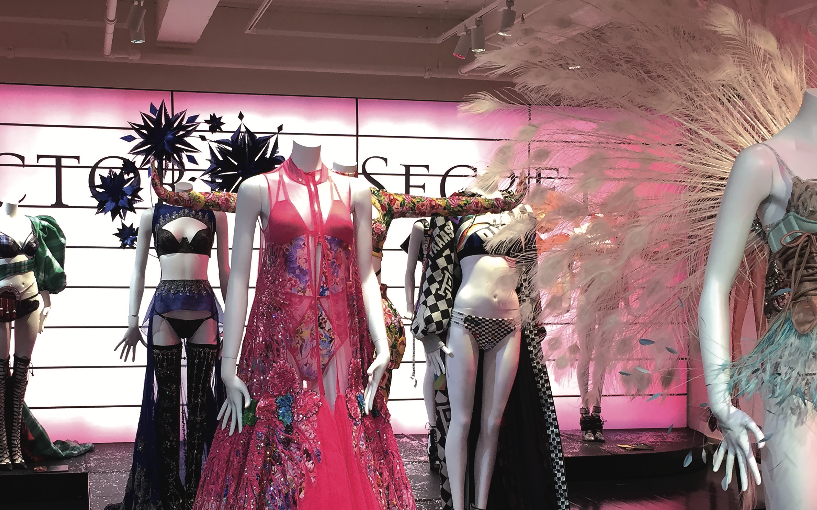Victoria’s Secret, It’s Time to Make a Change
CELIA PATTERSON/THE OBSERVER
The secret’s out: Victoria’s out of touch with women and girls around the world.
December 5, 2018
Dear Monica Mitro, Ed Razek and Victoria’s Secret,
“We market who we sell to, and we don’t market to the whole world.” When I read this in your interview with Vogue Magazine regarding the topic of transgender and plus-size models walking in the Victoria’s Secret Fashion Show, I was taken aback. You rationalized your grossly inflammatory statement by labeling your show a “fantasy” that reflects the brand, and how the brand — and your viewers — are not interested in the show changing to reflect society’s standards.
Well, Ms. Mitro and Mr. Razek, I respectfully disagree with your claims. Though I never had cable and never watched the show, I have seen videos that parade what you consider to be the world’s most beautiful women in the most beautiful lingerie. I have never experienced skinny shaming, which you both boast of your models experiencing; however, I have experienced, and still do experience, self-directed body shaming, and most girls have too.
It’s not the fault of the models for being skinny, it’s the fault of the brand for not increasing model diversity. When I was in the eighth grade, Ms. Mitro and Mr. Razek, it was the fascination with your models that caused me to develop an eating disorder. I and many other girls saw your models and we heard our peers — who we thought were models in their own right — talk of how they were hideous, how they were nothing, how they needed to “diet” and how they wished they could be that perfect.
“Perfect.” I hate that word. That word which I so often associated with your beautiful models and so seldom associated with my fellow female peers. As I saw each girl I knew look at herself and destroy her body image, I began to look at myself asking, “If they are not perfect or beautiful, then, God, what must I be?”
As I looked around at all the women my age calling themselves “fat” and “hideous,” I began to look at myself in that same light. When I first started losing weight, it wasn’t a bad thing. I could have stood to lose a few pounds. I soon took the weight loss, however, to the level of an obsession. If I ate anything, I had to work out. It didn’t help that, the more weight I lost, the thinner I became, the more “perfect” my body was in the eyes of my peers. I was killing myself for a perfection with which I and all other teenage girls were bombarded — in the media, in department stores, online, everywhere — but especially within the Victoria’s Secret brand.
So, even with my eating disorder behind me, when I read your statement, I instantly thought of all the women I know who wish they were your models but know they never can be because they don’t fit your image of perfection.
I understand you have a brand and a business to uphold, Ms. Mitro and Mr. Razek. However, I do not think you understand that in upholding your brand of skinny and toned, five-feet-nine-inch and above models, you have a profound effect on young women’s mental health.
I ask you to reconsider your branding. I ask you to think of the “power” of which you boast, the influence you know you have and how your brand is affecting the minds of young women. I am asking, Ms. Mitro and Mr. Razek, for you to think of your audience. As you refrain from changing your branding to include all women, your audience is decreasing. Your sales are declining. You will not remain number one if you do not decide to change your “fantasy.”
In fact, you are no longer poised to be number one. According to an article in Forbes in February 2018, “Aerie is ‘the leading intimates brand in the marketplace’ with their sales up 23 percent through the first three quarters of 2017.” While the L Brands stock “is down 40 percent for the [2018] year.”
If you think you can still remain on top in this industry and not alter your d esigns and shows, then you are truly living in a fantasy. Your audience is not only the models who market your clothing. Your audience is not just the “perfect” girl. Your audience is women — all women — and you ought to reflect what all women look like.












